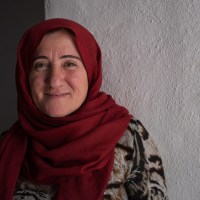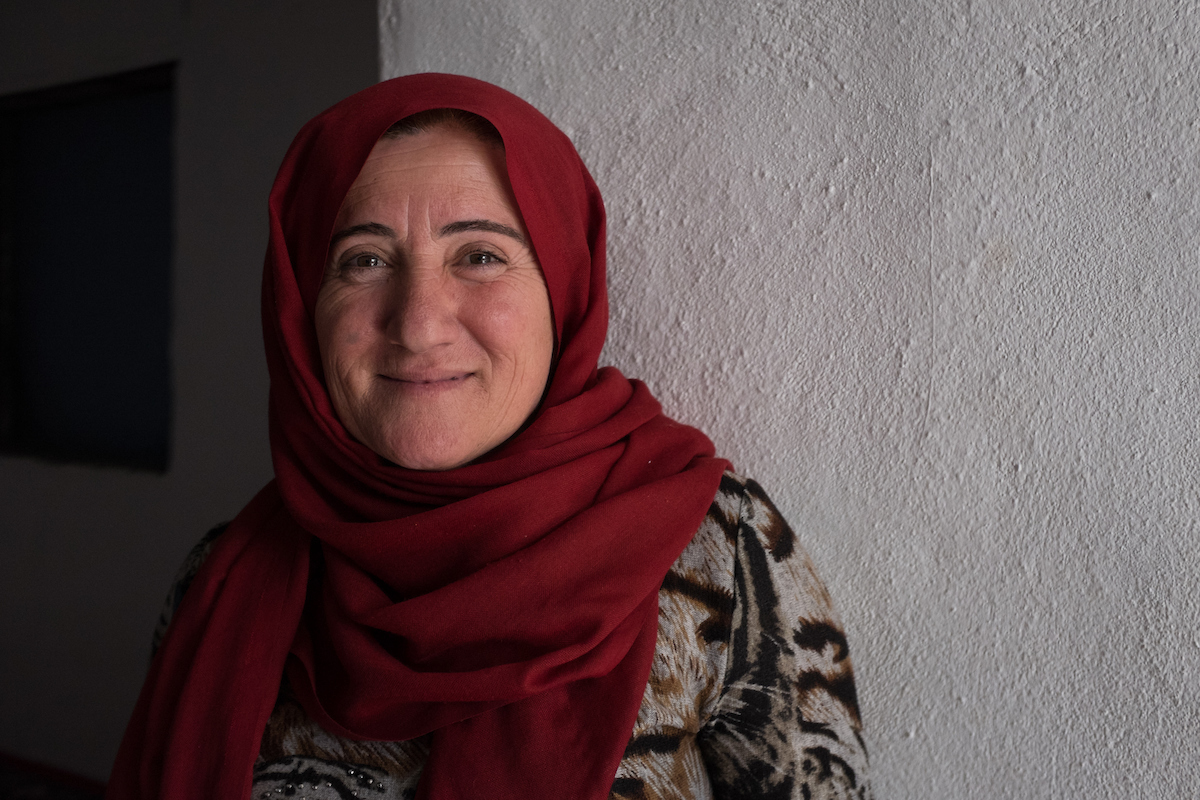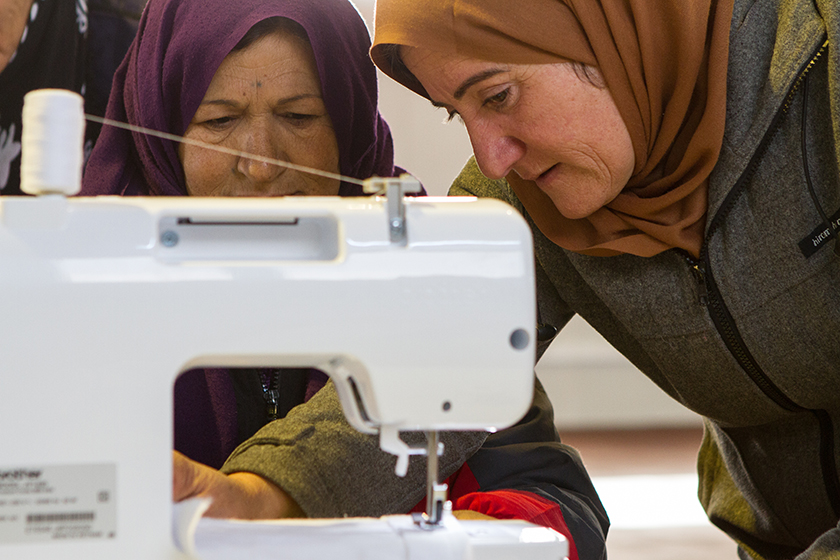
We sit in Widad’s guest room. It’s a combination living room/sewing workshop, with cushioned seating lining three walls and a sewing machine placed near the window to take advantage of daylight.
Arabic coffee is passed around in pretty cups and saucers that clink as we resettle to hear each other better. Four languages are spoken as we listen to stories—two Kurdish dialects, Arabic, and English—but between us all, we’re able to translate for each other. A baby sleeps in the corner despite the cacophony of voices.
It is all perfectly ordinary, and perfectly extraordinary. Widad hosts us all in her home without skipping a beat. It’s almost possible to forget that we’re in a camp for Syrian refugees, sitting among women who lost everything in war.
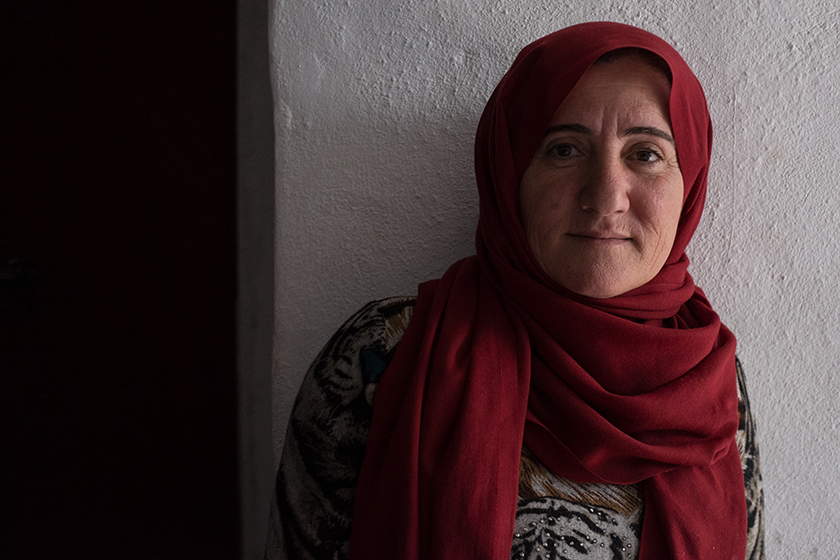
We ask Widad how her sewing business is going, and she gestures to a pile of plastic crates and bags spilling out from underneath a work table. Each bag holds a customer’s order—a in progress. It’s exciting to see that she has so much work at the moment that she needs to prioritize orders.
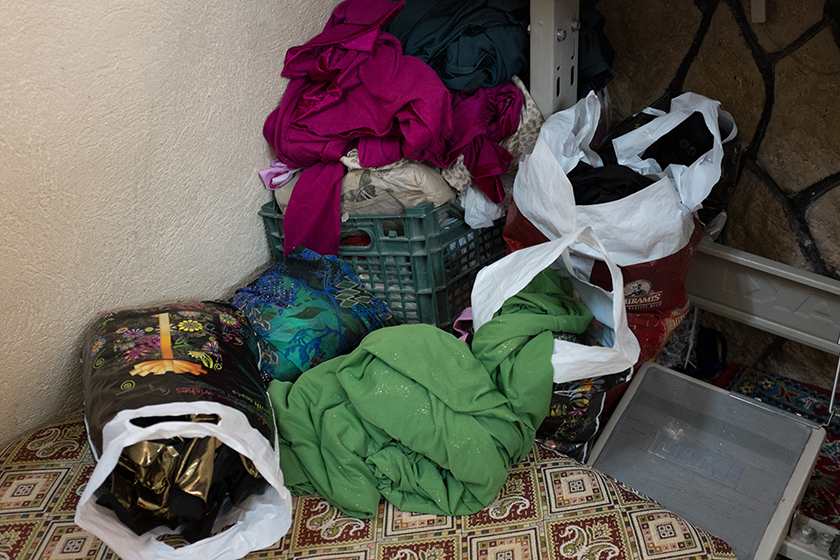
It’s almost six months since Widad started her business. When she began, she was using the traditional set-up for home sewers: kneeling, using a small table to raise the sewing machine up off the floor. Her current arrangement is impressive: two sewing machines (one borrowed from a neighbor for sewing tough fabrics), a serger, and several work tables.
She schedules her time to make the best use of available electricity: cutting out pattern pieces during the day when there is no electricity but plenty of natural light, then sewing late into the night when government electricity is available to power her sewing machine for six hours at a stretch.
Back in Syria, Widad was known for her sewing skills. She created special bedding sets for brides and newborns, home decor items, and the traditional cushioned seating found in most Middle Eastern homes.
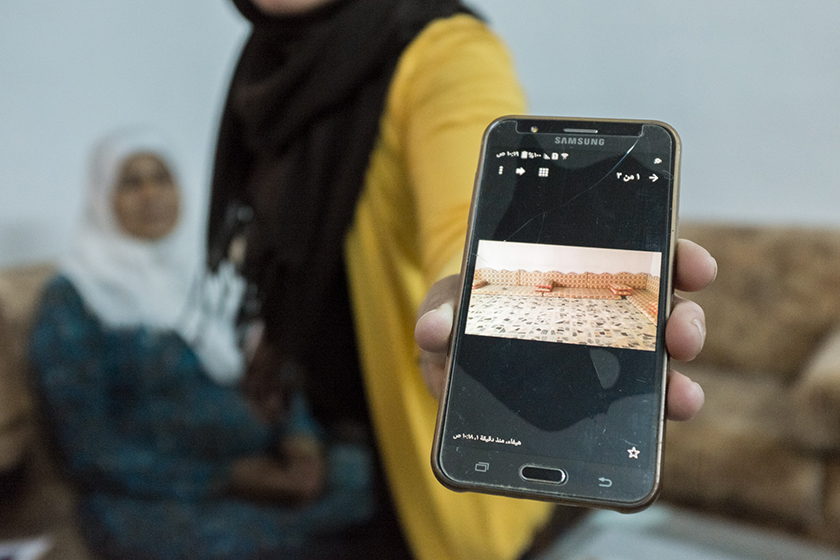
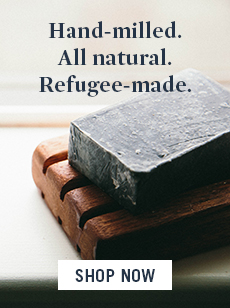
Before she fled Syria, Widad worked in a factory making children’s undershirts. It was a large factory with 400 employees who were all paid per garment sewn. Working there added speed to Widad’s skill set, which compliments her preciseness. She decided to quit the factory, but because she was such a good worker, her employers had a difficult time accepting her resignation. “No, no!” They said, “Not you!”
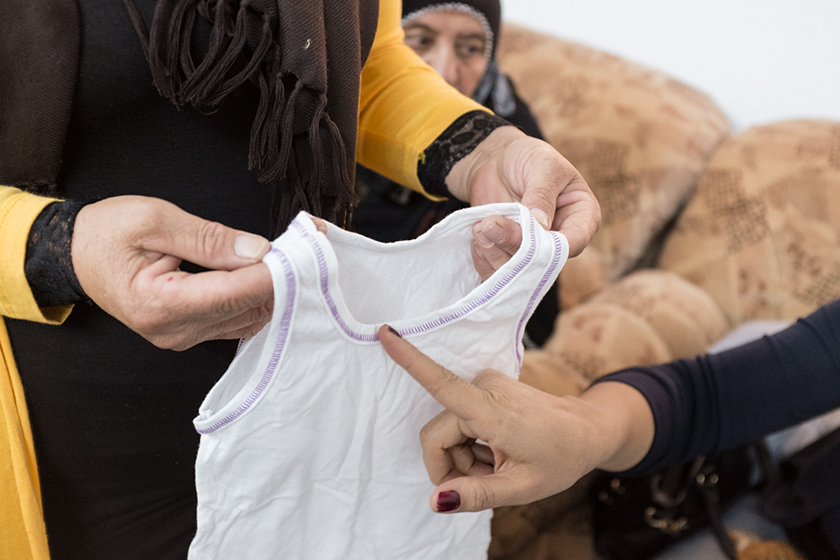
As Widad talks, she pulls out an outfit she’s finishing this week—a traditionally-styled dress and vest, made from fabric printed with Kurdish flags. It’s one of a series of costumes she’s making for a musical group at the camp’s elementary school, who will perform at a big annual celebration in a couple weeks.
Widad smooths the fabric with one hand, while she explains to one of the women how to achieve consistent arcs when cutting sleeves.
She speaks with the kind of quiet confidence that comes with years of experience—30 years of experience in her case.
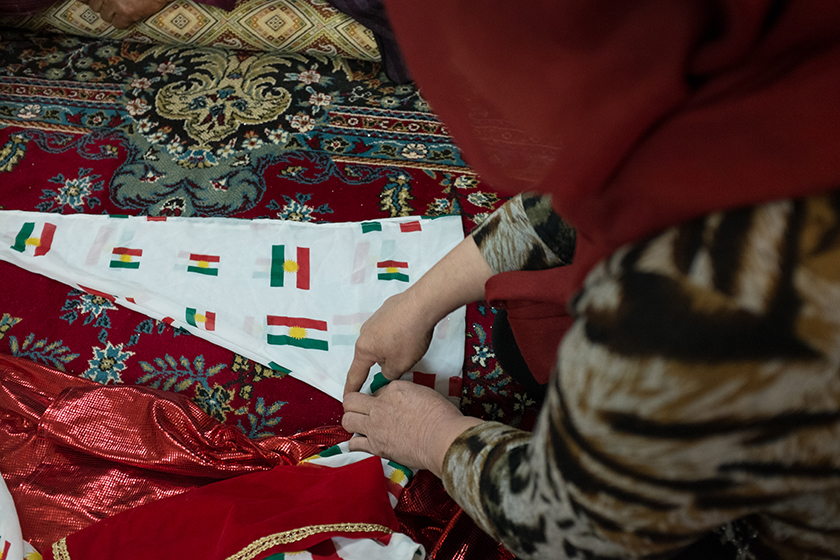
It is in moments like this that Widad really comes into her own. She is a great seamstress, but something else in her comes alive when she’s able to share technique—to teach.
We recently hired Widad to train a group of seamstresses to use their new sewing machines. Many of the women have years of experience in sewing, but previously only used vintage treadle sewing machines. They needed a bit of coaching to get comfortable with the modern machines.
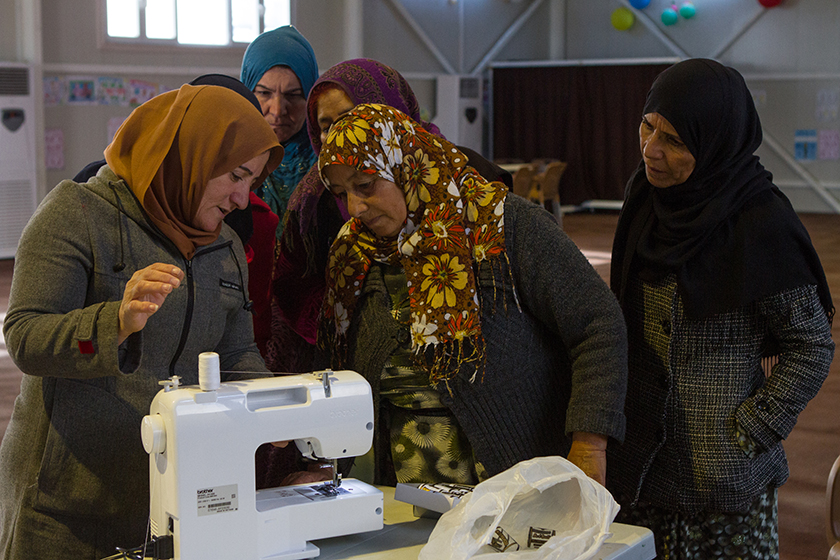
Widad set about teaching her groups in the same calm way we see her approach everything: with patience, excellence, and sensitivity. She made sure that each woman had as long as she needed to practice. She gave extra advice when asked and gave space when someone showed more confidence.
If you look strictly at circumstance, Widad’s life looks precarious: she is a widow who lives with her daughter in a refugee camp in a country that is at war. And yet, she has the kind of calm confidence that speaks to the stability she has now, in part because you helped her create a business that supports her family.
This kind of business empowerment has changed Widad’s life and allowed her to pour into the lives of others—a beautiful example of the exponential nature of empowering women. This is how families are rebuilt and communities are remade.
And with some help from you, these ladies are making it happen.
Empower a woman to remake her world.

